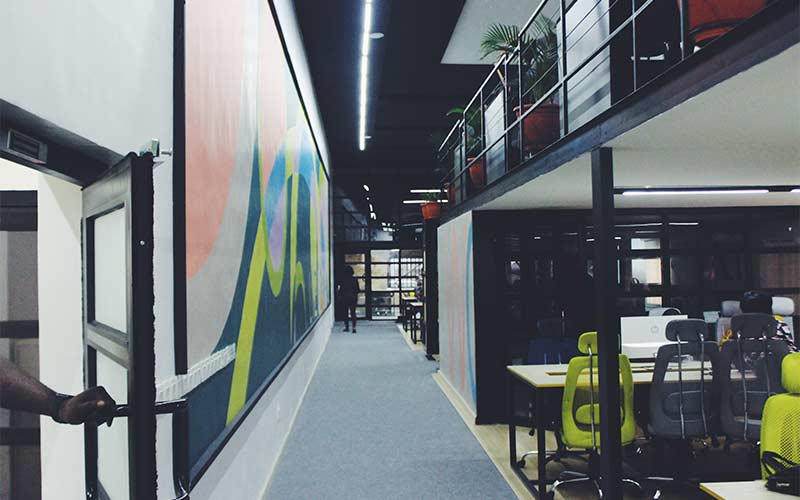466 million people all over the globe are deaf or hearing-impaired, with 432 million of them being adults. By 2050, the number of adults and children with hearing loss is expected to rise to 900 million.
If you’re hard of hearing or deaf, you’re not alone. Many others share the same struggles. When it comes to gaining traction in your career, you should know that using the latest assistive technology will help you to access your work environment. This post shares information about two cutting-edge assistive technologies which help deaf and hard of hearing people to achieve their career goals.

Photo by Kolapo Oni on Unsplash
FM systems make meetings easier
When you use an FM system, the leader of a meeting will wear a microphone. When he or she speaks, the sound will be transmitted directly to you, at a volume that is consistent, no matter how far from the microphone you are. At present, there are a couple of FM system options and they are sound field and personal.
The personal FM system couples right to a cochlear implant or hearing aid and it must be set for every person who uses it. The sound field style offers directed, boosted sound levels to groups of people, through specialized speakers which are placed around the conference room, in strategic locations.
Telecommunication devices offer benefits
A TDD (telecommunication device for the deaf) is a form of teleprinter which allows for text communication via a typical telephone line. It’s perfect for deaf and hearing-impaired people and provides practical assistance to those who have trouble speaking. When you invest in a TDD system, you’ll be able to take calls without needing to worry about missing things due to your hearing loss.
Another option is a telephone which is captioned. These captioned telephones are best for those who do have some hearing. The give users the ability to carry on spoken conversations, while receiving transcripts of conversations on computer monitors. A captioned telephone will give you greater peace of mind, as you may refer to the transcript if you feel that you aren’t hearing certain words. To do well in your career, you'll need to access correct information and this device will help.
Showcase your skills and achievements
If you want to find a job and then move up the corporate ladder, you should polish your CV and use the Web to network with prospective employers. When your curriculum vitae highlights your strengths, rather than your hearing loss, you will have a better chance of getting an interview. You may then use assistive technology during interviews. If you get hired, you may utilize assistive accessories to integrate with your new work environment.
Technology keeps evolving
These two options are vital assistive technologies, but they aren’t the only assistive technologies. They are great starting points if you want to improve your ability to understand others while you are at work. When you use an FM system during meetings and rely on your preferred form of telecommunication device for phone calls, you’ll empower yourself and boost the odds of career success.
If you like what you see, share it so others can benefit
Posted by Cassie

Cassandra Lomax
Cassandra Lomax is a freelance writer and editor who specializes in healthcare and wellness. Before taking the leap into the freelance world she worked in charity PR. She enjoys running, swimming and spending time travelling with her family when not at work.
Looking For the Latest Hearing Aids or A Hearing Test?
Arrange a consultation with a trusted Independent hearing healthcare professional in your area



